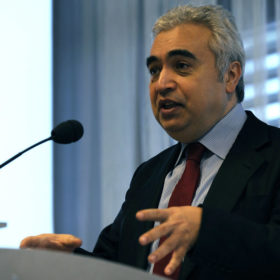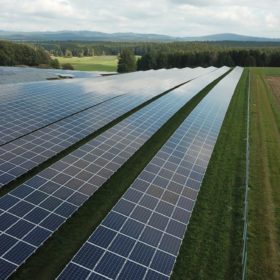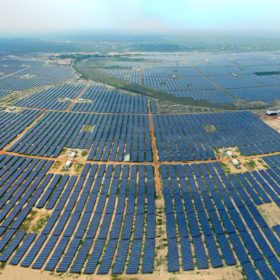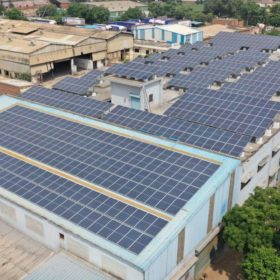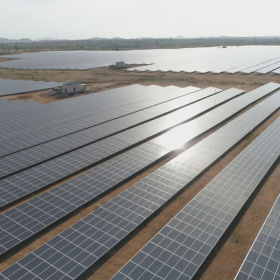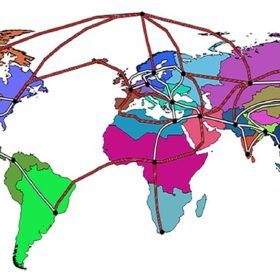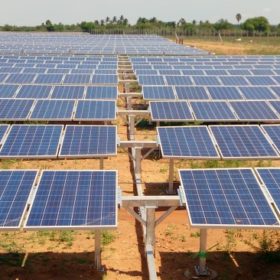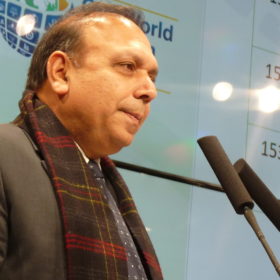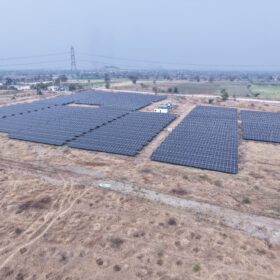Solar, wind and hydro resilient during Covid-19 crisis
A study by the International Energy Agency into the chilling effect of the Covid-19 pandemic on energy demand states renewables will be ‘the only energy source likely to experience demand growth for the rest of 2020’. The slower the economic recovery, the more the fossil fuel industry will suffer.
LCOE from large scale PV fell 4% to $50 per megawatt-hour in six months
Analysts at Bloomberg New Energy Finance say the lowest-cost projects financed in Australia, China, Chile and the UAE in the last six months hit a levelized cost of energy of just $23-29/MWh and the best solar and wind projects will produce electricity for less than $20/MWh by 2030.
Indian solar generators largely unaffected amid Covid crisis, says Fitch Ratings
Liquidity of solar generators remains largely unaffected as they have been receiving payments from Discoms regularly. Azure and Adani Green Energy restricted groups, in particular, have comfortable liquidity position and will be able to meet their mandatory expenditure in the next six to 12 months.
MYSUN raises Rs 32 crore to scale up rooftop solar business
The Delhi-based end-to-end rooftop solar company is looking to eventually raise Rs 250 crore ($35 million) as it plans to improve its technology infrastructure further, scale up the service offerings, and expand to newer geographies, including parts of Middle East, Asia Pacific and Africa.
US investor KKR to acquire 317 MWp of SP Infra solar assets
Marking its second infrastructure investment in India, KKR will acquire Mumbai-based Shapoorji Pallonji Infrastructure’s 169 MWp solar assets in Maharashtra and 148 MWp in Tamil Nadu for a sum of Rs 15.54 billion (approximately US$204 million).
India’s renewable energy subsidies fell 35% in three years
The subsidies to renewable energy went from a high of Rs 15,313 crore in FY2017 to Rs 9,930 crore in FY2019. At the same time, government subsidies for oil and gas went up from Rs 40,762 crore in FY2017 to Rs 67,679 crore in FY2019. Unprecedented resource crunch post-Covid-19, however, presents a good opportunity for the government to rein in specific fossil fuel subsidies while creating more fiscal room for promoting renewables and other welfare schemes—according to a new report by the International Institute for Sustainable Development (IISD) and the Council on Energy, Environment and Water (CEEW).
Global supergrid vs. regional supergrids
Researchers from Finland’s Lappeenranta University of Technology have assessed the economic advantages of a fully interconnected global network. They found that an international grid could contribute to a global LCOE of €52.50/MWh. The higher complexity of such a system, however, would only be marginally compensated by additional economic benefits.
Covid-19 pandemic puts 150 GW of PV, wind at risk in Asia
Up to 150 GW of PV and wind projects could be postponed or canceled throughout the Asia-Pacific region by 2024 if the coronavirus-triggered recession continues beyond the current year, according to new research by Wood Mackenzie.
MNRE to host Global RE-Invest 2020 digitally
Given Covid-19 spread, India’s ministry has decided to conduct the third Global Renewable Energy Investors Meet and exposition (3rd RE-Invest)—scheduled from October 15 to 17—on a digital platform. The ministry has sought proposals for an interactive IT platform to facilitate the same.
MNRE backs multi-pronged approach to support solar sector
The Indian government is working on the creation of a Rs 10,000 crore (US$1.3 billion) alternative investment fund to provide payments to PV developers.
